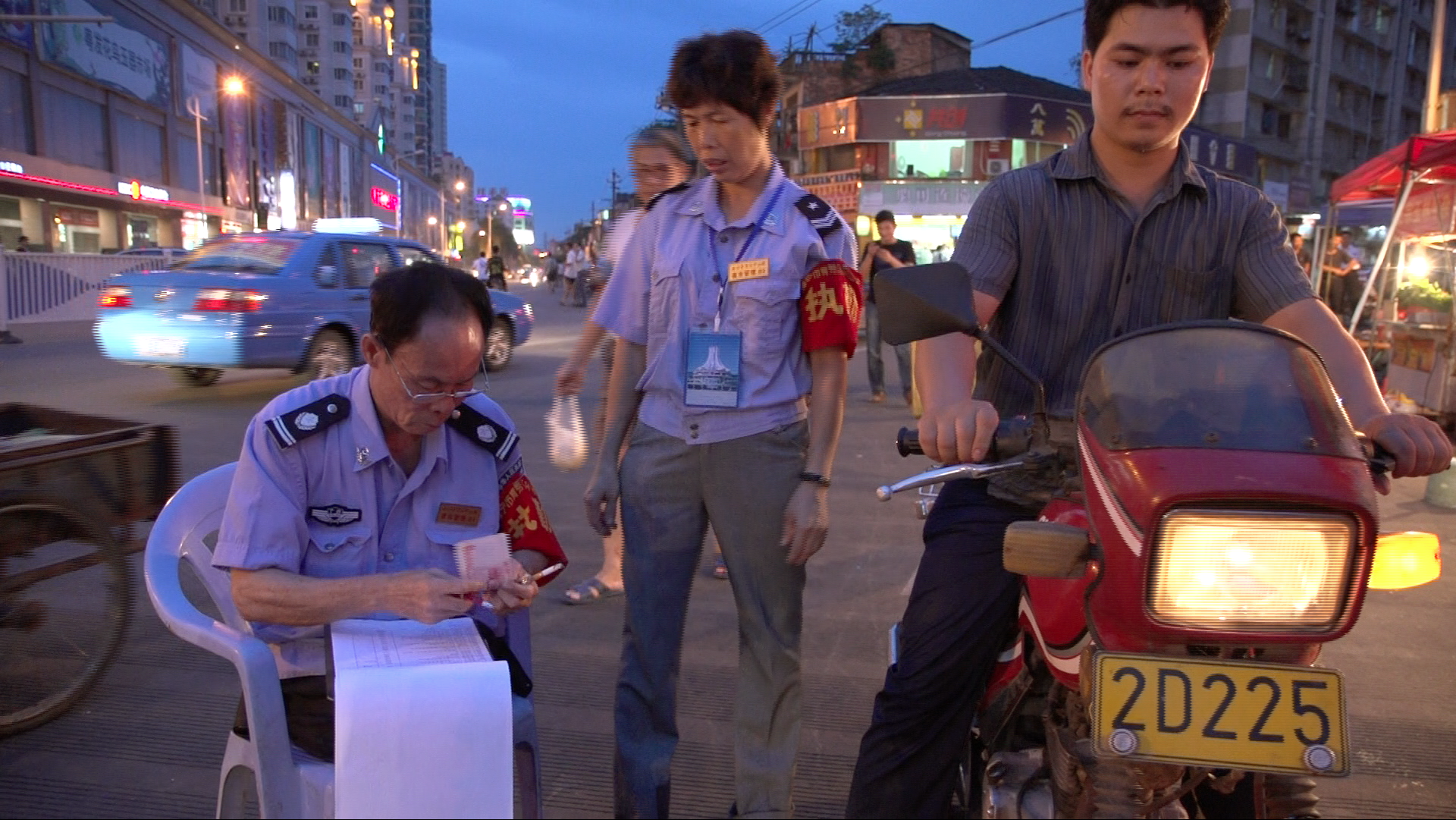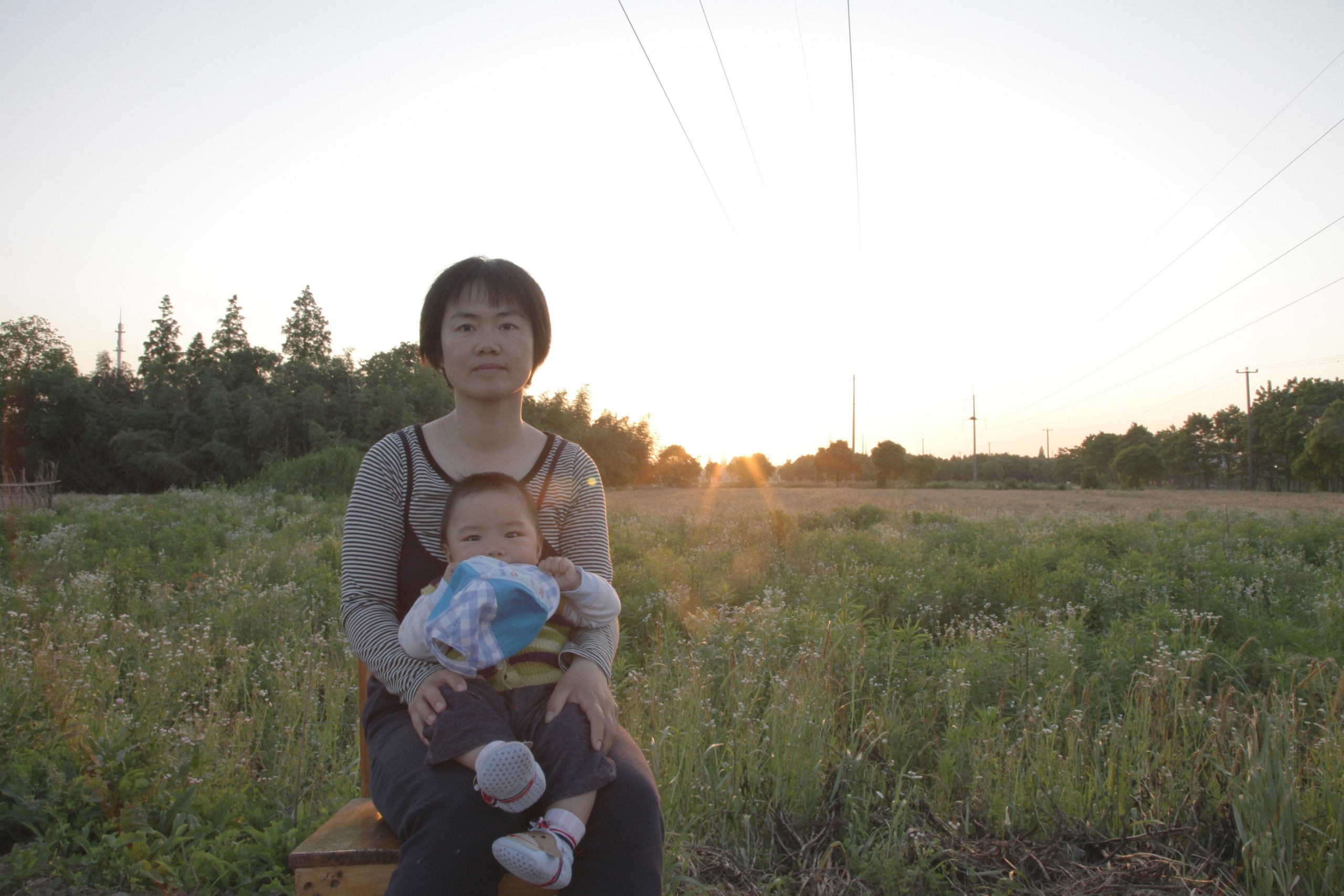China 2015 / 61 min
Director:ZENG Xi
North of the National Stadium, the Bird’s Nest, in Beijing is Dong Xiao Kou, a place where 30 thousand Henan residents migrated. They earn a living by scavenging for worn-out recyclables, trying to find a shelter in this city.
In 2002, Lao Xu from Henan rented a wasteland of a hundred acres in Dong Xiao Kou, removed the weeds, paved the roads, built houses, and began to bring along his family and fellow townsmen.
In 2003, Lao Liu’s restaurant closed down. Carrying 3000 RMN, he took his family from Guangshan, Henan to live in Beijing, collecting and selling worn-out wood. For a decade, they’ve lived there in this so-called “waste city,” which is also known as the largest waste disposal and recycling station in Beijing.
12-year-old Wang Qin and her sister, Wang Yun, also grew up in this dilapidated part of the city where they call home, despite the fact that it will soon be demolished and redeveloped, and that they will be forced to move back to their estranged hometown in Henan.
The film records in prose style how families, clans, and villagers move collectively and relocate in Beijing, searching for a livable place and coping with the sense of marginalization and instability in the process of nationwide modernization.

Hong Kong 2014 / 37 min
Director:Kwong-yin Brian HUNG
In a city that worships money more than anything, there is a group of people who insist, “man shall not live by bread alone.” But living in recluse is not their choice either. Rather, they actively take part in society by producing art that aims to influence others in addition to fine-tuning their own minds.
Wong Chung-yu, the initiator of digital ink art, used to think that becoming a computer science major means a bright future. But as he enrolled in college, he realized he had no ambition in this
field at all. He then became a student of Wucius Wong, a master in Chinese ink art. After a while, he found himself trapped by convention and not breaking new grounds. He went to London to study digital art and found a new world for himself there. He adopted an artistic approach which invites viewers to take alternative viewpoints to see the otherwise “archaic” Chinese ink art. He brings together the best elements of western and oriental cultures to make art. His works have been selected into the Hong Kong Art Biennial for three times.
Other than brainstorming a variety of dance performances, choreographer Pewan Chow tries hard to break the invisible line that sets the performers and the audience apart. Her recent work, Maze by Passoverdance , invited audience to interact with the dancers. While the Hong Kong audience is used to sit and watch the performance, they got to enjoy a brand-new experience of seeing in a wild, free space where Maze by Passoverdance was staged. Even the sponsoring cultural agency officials, who have seen numerous performances, were amazed. All of the tickets of Maze by Passoverdance were sold out, which was unprecedented for dance performances in Hong Kong. It can be said that Pewen has reignited the audience’s passion and brought our good old days back to life.
Chung-yu and Pewan’s innovative acts have truly brought Hong Kong’s artistic circle forward. Most importantly, by showing their passion for art, they make people realize that no matter the difficulties, as long as one is determined enough, he or she will be able to move on with love.

China 2014 / 85 min
Director:WU Jian-xin
This documentary aims to show the stories of ordinary people on Zhongshan Road represented by night market manager Ninth Uncle, as well as the vicissitudes of life in a changing era.
Ninth Uncle is nicknamed “mayor of the night market.” He has been handling the Zhongshan Road Night Market for 30 years as a contract staff for the government. All kinds of private business owners gather up at the market; some are nice, some are not. Ninth Uncle rules the market with a slightly rough, gangster approach and it works well. With his hard effort, the night market grew from just a few street vendors to a full-fledged 300-stand food plaza. The Zhongshan Road has since been known far and wide for its gourmet food. As the market thrives, the business owners and the city’s district officer show more respect to him. Thus Ninth Uncle’s status is quite high in the area. Although he is almost 70, NinthUncle contributes most of his time to the night market. Whenever the night falls, he puts on his work uniform and brings his baton to go for a patrol in the night market with his team, no matter the weather. By midnight, he invites old friends from the market to drink and play card games. Dizzy, they then take a high-profile late night walk through the city.
Ninth Uncle is successful at the night market, but he is not doing well when it comes to family. He lived a rather rough childhood and divorced several times. Now that he is old, he fails to enjoy a good relationship with his children. One lucky thing is that his current wife Xiao Yang is a gentle lady who doesn’t like to fight. She takes very good care of Ninth Uncle, too. On this year’s Mid-Autumn Festival, Ninth Uncle and Xiao Yang got together with the family and worshiped their ancestors. As they ate, Ninth Uncle asked his son to get a stable job and marry soon. His son wouldn’t. The reunion ended in dismal.
While the century-old Zhongshan Road looks shattered in the day, it transforms into a busy golden route in the night. Amidst the bustles and hustles are people making money by selling different things. And among these people is Sixth Uncle, a night market business owner and long-time neighbors with Ninth Uncle. They have been sharing drinks and meals for decades like brothers. Theyare such good friends that they almost meet up daily to play cards and drink wine. Sixth Uncle was a gangster when he was young. He used to cheat in poker games and even spent three years on reeducation through labor due to gambling. After losing his clothing business, Sixth Uncle returned to Zhongshan Road to open a food shop and has been in the trade for more than 20 years since then. There is also Sister Hen whose old chicken porridge shop receives more customers as it draws deeper into the night. A few years ago, Sister Hen lost 2.8 million due to gambling. It cost her only more than a year to pay the debts. Now, she’s ready to rise again.
But the 30-year-old night market is counting its days, because the government will soon “renew” the Zhongshan Road. By then, this night market featuring gourmet food will cease to exist. As demolishment work goes on, the night market loses its customers. Sixth Uncle used to enjoy a great business, but his shop has now been torn down. He can do nothing but to be a street vendor again with his wife and a few staff. Some old stores announce that they will soon relocate. Ninth Uncle has a night market revival plan in mind, but he can only watch his kingdom decline day by day. The world is not on his side.
The Chinese New Year is drawing near, and a few more facades of the street are being knocked down. But Ninth Uncle is thrilled because neighboring Gonghe Road, now a night market street, is to be managed by him. Ninth Uncle is busy recruiting new managerial staff to keep the street in order and to secure their authority at work. At the same time, all of the private business owners in the night market are also getting ready for the busiest festival of a year.

China /2014 / 75 min
Director:GU Xiao-gang
Some years ago, white-collar worker Lao Jia left metropolitan Shanghai to live on the idyllicChongming Island. He contracted, more than 200 acres of land, adopting “natural FARMING” to grow crops without using any chemical pesticides or fertilizers. His wife Li Zi, persuaded, followed along to begin a new life surrounded by nature with him.
Problems about food safety are many. Lao Jia had therefore attracted crowds of urban followers for his “back to rural villages” ideal and unique farming concepts. Local farmers disagreed, however. Some said he wasting this country’s food, because he was only growing crops affordable by the wealthy.
Of his followers, many are young volunteers who worked for him in exchange of accommodation. They had all dreamed about a wonderful village life, but were soon disappointed by solitude, which they are not used to, and lack of material pleasure as they arrived on the farm. Hence it was difficult for Lao Jia to train any youngster to be his successor, and he eventually took his wife as his sole farming disciple. They lived and worked closely together, but Li Zi realized at a later stage that, no matter she gave up on a city life to come to this village with her love, her marriage life had become anything but a happy one. The couple no longer supported each other out of romantic love, but shared the work more like just ordinary co-workers. One day, during a fight, they spoke of divorce. Lao Jia’s mother succeeded in persuading them to stay together; they even had a baby afterwards. Then, on another day, Li Zi had a conversation with some old village ladies. She learned that all of them had lived through the hardships she was living through. They raised their children on their own, farmed and worked, and tried hard to keep the family together. Li Zi finally felt peace of mind through this conversation, since most of the village women share the same fate. She started to accept her circumstances.
Just when the child was almost six months old, Li Zi found out that Lao Jia had been secreting dating another woman for the last three years. Lao Jia then left the farm, and Li Zi’s father also died unfortunately. Now that the two most important men in her life had left, it dawned on Li Zi that life is an ongoing journey. There were times when she happily followed Lao Jia on the farm. They planted seeds and seedlings grew. They harvested rice together, but Lao Jiao had long betrayed her when it comes to love.

Contact Mail